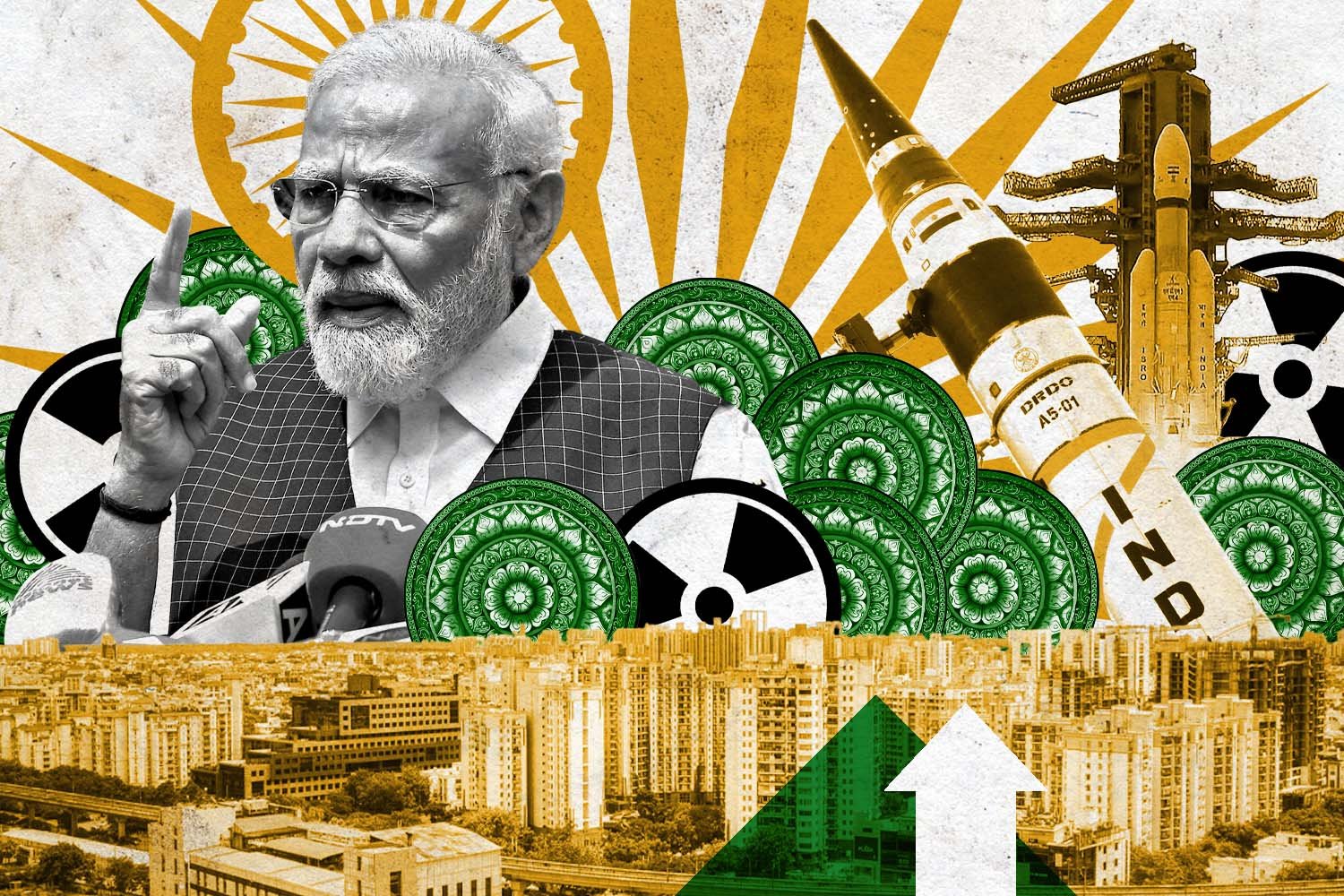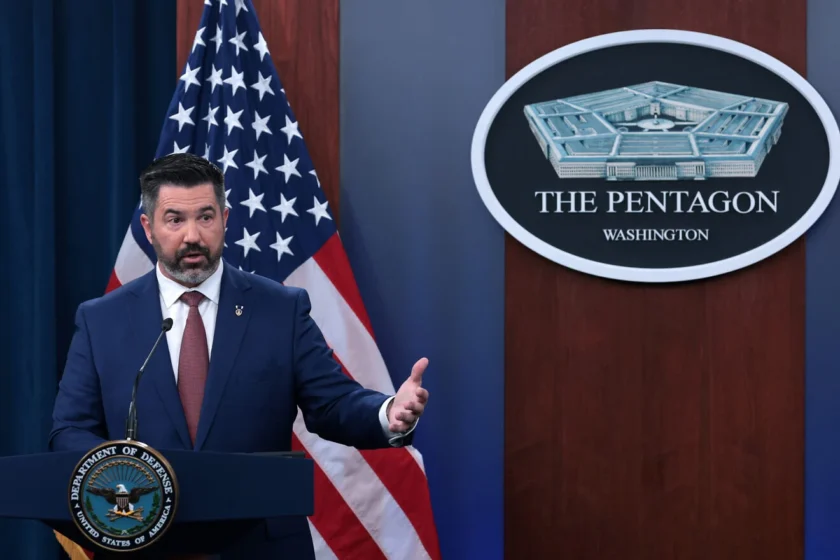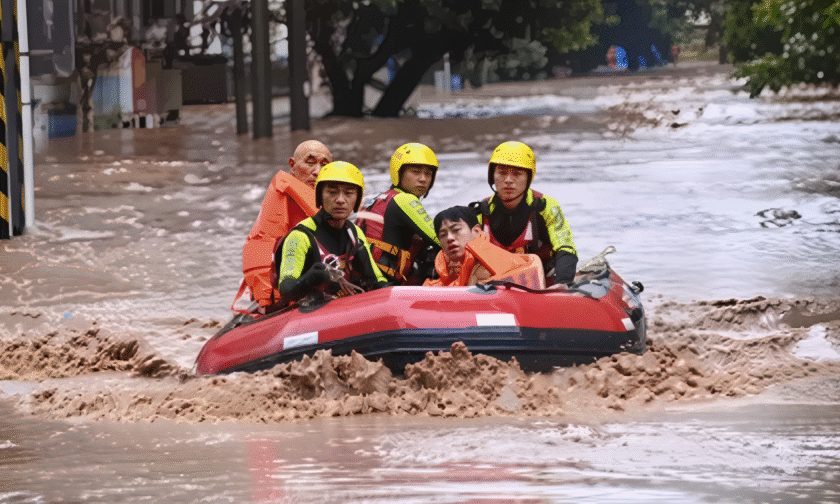New Delhi: India’s aspiration to become a global superpower is an ambitious and multifaceted goal, involving economic growth, military modernization, diplomatic engagement, and socio-political stability. With its vast population, rich cultural heritage, and strategic geopolitical position, India has several advantages that could propel it toward this status. However, there are also significant challenges that need to be addressed. This essay explores India’s strengths and the hurdles it must overcome on its path to becoming a global superpower.
Economic Growth and Development
India’s economic growth is a critical factor in its bid to become a global superpower. Over the past few decades, India has transitioned from a largely agrarian economy to a more diversified one, with significant contributions from the services and industrial sectors. According to the International Monetary Fund (IMF), India is one of the fastest-growing major economies, with a growth rate that often surpasses that of many other countries.
Key initiatives such as “Make in India” and “Digital India” aim to boost manufacturing and technological innovation, respectively. “Make in India” focuses on encouraging both multinational and domestic companies to manufacture their products in India, thereby creating jobs and enhancing the industrial base. “Digital India” aims to transform the country into a digitally empowered society and knowledge economy, with a focus on improving internet connectivity and digital literacy.
However, economic growth must be inclusive. India still grapples with significant issues such as poverty, unemployment, and income inequality. The agricultural sector, which employs a large portion of the population, remains underdeveloped. Ensuring sustainable and inclusive growth is crucial for maintaining social stability and harnessing the full potential of the country’s human resources.
Military Modernization
India’s military capabilities are a vital component of its superpower aspirations. The country possesses one of the largest armed forces in the world and is a recognized nuclear power. India’s strategic location, bordering several critical regions including China and Pakistan, necessitates a strong defense posture.
To modernize its military, India has been investing heavily in defense technology and infrastructure. The Indian government has allocated substantial budgets for the procurement of advanced weapons systems, indigenous defense production, and research and development in military technologies. Initiatives like the Defense Research and Development Organization (DRDO) and collaborations with global defense companies aim to enhance self-reliance in defense production.
Nevertheless, challenges persist. The Indian military faces issues such as outdated equipment, bureaucratic inefficiencies, and the need for more robust logistical support. Addressing these challenges is essential for India to maintain a credible defense posture and project power beyond its immediate neighborhood.
Diplomatic Engagement
India’s diplomatic efforts play a crucial role in its quest for global influence. As a founding member of the Non-Aligned Movement and a key player in the BRICS (Brazil, Russia, India, China, South Africa) group, India has historically pursued an independent foreign policy. More recently, India has strengthened its ties with major powers like the United States, the European Union, Japan, and Australia, while also maintaining strong relations with Russia and other developing nations.
India’s participation in international organizations such as the United Nations, the World Trade Organization, and the G20 provides platforms to advocate for its interests and contribute to global governance. Furthermore, India’s efforts to secure a permanent seat on the UN Security Council underscore its ambitions to play a more prominent role in global decision-making.
Regional diplomacy is equally important. India’s leadership in the South Asian Association for Regional Cooperation (SAARC) and initiatives like the Bay of Bengal Initiative for Multi-Sectoral Technical and Economic Cooperation (BIMSTEC) aim to foster regional cooperation and economic integration. However, regional tensions, particularly with Pakistan and China, pose significant diplomatic challenges.

Socio-Political Stability
Achieving and maintaining socio-political stability is essential for India’s superpower ambitions. India is the world’s largest democracy, and its democratic institutions and processes are a source of strength. However, the country faces several internal challenges, including religious and ethnic tensions, regional disparities, and corruption.
Social cohesion is crucial for national unity and stability. Efforts to promote inclusive development, protect minority rights, and ensure justice and equality for all citizens are vital. Additionally, addressing regional disparities through targeted development programs can help mitigate separatist movements and regional unrest.
Corruption remains a significant obstacle to India’s progress. Transparency, accountability, and good governance are necessary to build public trust and ensure that development benefits reach all sections of society. Strengthening institutions like the judiciary, law enforcement, and regulatory bodies can help combat corruption and enhance the effectiveness of governance.
Technological Advancement
Technological innovation and advancement are critical for India’s global superpower aspirations. India has made significant strides in the fields of information technology, space exploration, and biotechnology. The country is home to a vibrant tech industry, with cities like Bangalore emerging as global tech hubs.
India’s space program, spearheaded by the Indian Space Research Organisation (ISRO), has achieved remarkable successes, including missions to the Moon and Mars. These achievements not only enhance national pride but also demonstrate India’s capabilities in high-technology sectors.
Continued investment in education, research, and development is necessary to maintain and expand technological leadership. Promoting science, technology, engineering, and mathematics (STEM) education, fostering innovation, and supporting startups and research institutions are crucial steps in this direction.
India’s bid to become a global superpower is a complex and multi-dimensional endeavor. Economic growth, military modernization, diplomatic engagement, socio-political stability, and technological advancement are all critical components of this journey. While India has made significant progress in many areas, several challenges need to be addressed to realize its full potential.
A balanced approach that promotes inclusive development, strengthens national defense, enhances diplomatic relations, ensures social cohesion, and fosters technological innovation is essential. By leveraging its strengths and addressing its weaknesses, India can aspire to a prominent position on the global stage, contributing to global peace, prosperity, and stability.





